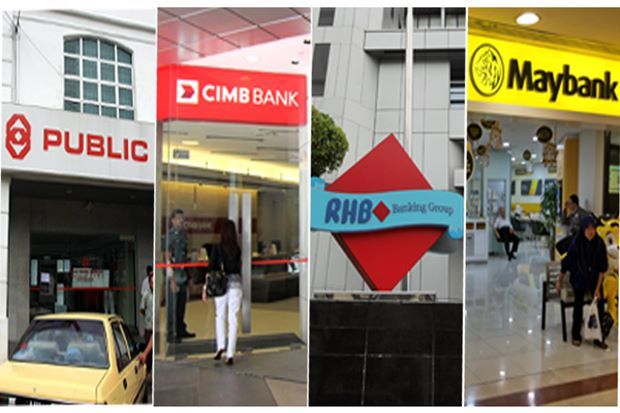The joys and sufferings of going cashless

One telling sign is this: banks are beginning to charge more when customers use cash to make payments. So Public Bank, for example, will start charging RM2 for over-the-counter payments (using cash or cheques) for loan repayments. If you use a cash deposit machine, a fee of 50 sen is imposed. However, it is free if you use online banking or even ATMs. This is bound to irk some, namely that group of people who still believe in using cash for most of their transactions. The Star/Asia News Network
KUALA LUMPUR — There are still a few among us who believe in the literal meaning of cash is king.
While that expression refers to holding cash as opposed to other investment assets, I am referring to people who still want to hold onto and use dollar notes and coins.
Many of us are increasingly holding and using less of those physical crisp notes.
The world is moving into a cashless society, with increasing use of cards, online banking and even e-wallets for payments. The jargon used to describe this phenomenon is electronic payments or e-payments.
One telling sign is this: banks are beginning to charge more when customers use cash to make payments. So Public Bank, for example, will start charging RM2 (PHP 25) for over-the-counter payments (using cash or cheques) for loan repayments. If you use a cash deposit machine, a fee of 50 sen is imposed. However, it is free if you use online banking or even ATMs.
This is bound to irk some, namely that group of people who still believe in using cash for most of their transactions.
To be fair to the bank, it is waiving the fees for senior citizens and the disabled who may have challenges in using smart phones and computers.
But is the move by the bank justified and what benefit does going cashless bring to the consumer? Especially the consumer who still believes in his right to still hold and use cash.
The usage of e-payments brings about a convenience. Most people appreciate that convenience but there are some who do not. Just like how, some people still would rather hail taxis or use a regular taxi driver for their commutes rather that download and use the widely available ride-hailing applications.
But there is another more important benefit. E-payments, at least in theory, should weed out illegal use of money. Here’s how: through e-payments, money movements are able to be easily tracked. Tax evasion, money laundering and even terrorist financing can be stopped. So in the end, the benefit of going cashless to the average law abiding citizen, is that the rule of law is being adhered to.
Going by that account, it will only be the parties involved in illegal activities that are most opposed to going cashless.
Cash still remains the main conduit for corruption and this has been the problem globally for many decades.
No wonder countries like Sweden have gone almost cashless. For others, demonetization has been one option. But it is not an easy task. Just consider the case of India. Its attempted demonetization exercise in 2016 did not clear out the holders of “black money”, meaning money that had either been obtained illegally or not declared tax on (or both). The bulk of the money in the system was returned into the banking system and remains undetected as black money. The crooks found multiple ways of getting their ill-gotten gains back into the financial system during the demonetization exercise.
Note also that India is a country whose financial infrastructure is lacking and whose banking system is not as tightly controlled as it should be.
Countries like Malaysia, which may be exploring a demonetization exercise, ought to draw lessons from India’s experience and only embark on the exercise when all loopholes are closed.
In the meantime, “taxing” the use of cash is an option and that is what Public Bank is doing. E-payments should also be encouraged with incentives. However, e-payments itself has its drawbacks. It needs significant education of the public. Many new users to e-payments are falling to online scams.
Aside from individuals who have amassed large swathes of cash through illegal means, small and medium-sized businesses are also major culprits in not paying their taxes.
It is well known that these smaller businesses tend to have two or more accounting books. Just ask the advisers of these companies who have to prepare them for a public listing or a major financial transaction – a major clean up and necessary tax declarations have to be made prior to such exercises.
Interestingly, insiders from the banking industry will tell you this: that banks have been lending to these small businesses not solely on their documentation but based also on evidence that these businessmen hold vast undeclared monies and assets.
In other words, although the small business would fail the credit evaluation based on their audited books, the bankers have agreed to lend them money because they are convinced that these businessmen have the means to payback, based on their hidden monies. The problem with this practice is that it tends to perpetuate the problem.
Perhaps banks should be forced to only provide facilities to these businesses based on valid documentation and nothing else. That will likely force these businessmen to slowly start declaring their other hitherto undeclared monies.